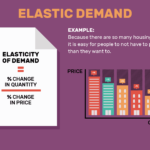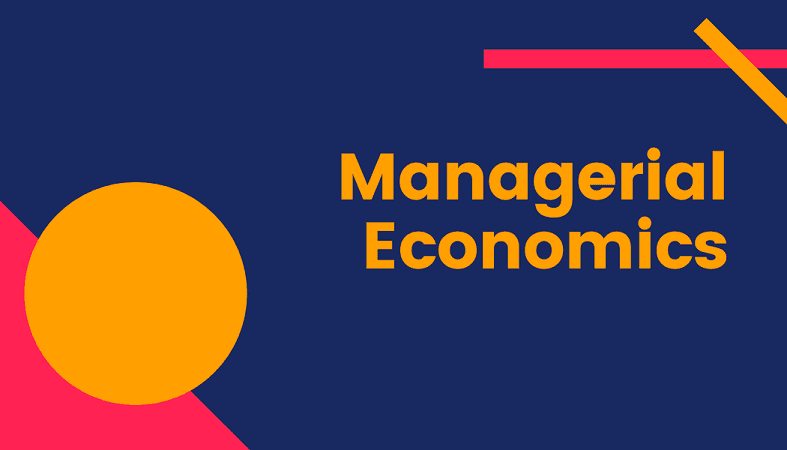Understanding Economics: Fundamentals, Applications, and Implications
Economics is the study of how societies allocate limited resources to meet their needs and wants. It encompasses a wide range of topics, from the behavior of individuals and businesses to the functioning of entire economies. Economics helps us understand the complexities of financial markets, government policies, and global trade, and it plays a crucial role in shaping public policy and business strategies. This article provides an overview of the fundamentals of economics, its applications, and its broader implications.
What is Economics?
Economics is broadly divided into two main branches:
- Microeconomics: This branch focuses on the behavior of individual consumers, firms, and industries. It examines how people make decisions about what to buy, how much to work, and how firms determine prices and production levels. Key concepts in microeconomics include supply and demand, elasticity, market structures, and consumer choice.
- Macroeconomics: Macroeconomics looks at the economy as a whole, analyzing aggregate indicators and national economic policies. It explores topics such as economic growth, unemployment, inflation, and monetary and fiscal policies. Macroeconomics seeks to understand how economies function and what factors drive economic fluctuations and long-term growth.
Key Concepts in Economics:
Several fundamental concepts form the foundation of economic theory:
- Supply and Demand: The law of supply and demand is a core principle of microeconomics. It states that the price of a good or service is determined by the relationship between its supply (availability) and demand (desire and ability to purchase). When demand exceeds supply, prices tend to rise, and vice versa.
- Opportunity Cost: Opportunity cost represents the value of the next best alternative that is forgone when making a decision. It highlights the trade-offs involved in choosing one option over another, emphasizing that resources are scarce and choices involve costs.
- Elasticity: Elasticity measures how responsive the quantity demanded or supplied of a good or service is to changes in price. Price elasticity of demand, for example, indicates how sensitive consumers are to price changes, affecting revenue and pricing strategies.
- Economic Efficiency: Economic efficiency occurs when resources are allocated in a way that maximizes total benefits to society. This concept involves optimizing production and consumption to achieve the best possible outcomes with the available resources.
- Market Structures: Market structures describe the organization of markets based on competition and pricing. Key market structures include perfect competition, monopoly, monopolistic competition, and oligopoly. Each structure has distinct characteristics and implications for market behavior and outcomes.
Applications of Economics:
Economics has practical applications in various areas, including:
- Public Policy: Economists analyze the impact of government policies on economic performance, such as taxation, subsidies, and regulations. They provide insights into policy effectiveness and help design measures to address economic issues like poverty, inequality, and unemployment.
- Business Strategy: Businesses use economic principles to make strategic decisions about pricing, production, and market entry. Understanding market demand, cost structures, and competitive dynamics helps firms optimize their operations and achieve competitive advantages.
- Global Trade: Economics plays a crucial role in understanding international trade and globalization. Economists study trade policies, exchange rates, and trade agreements to assess their impact on economies and global supply chains.
- Financial Markets: Economic analysis helps investors and financial institutions understand market trends, interest rates, and economic indicators. This information guides investment decisions, risk management, and financial planning.
- Development Economics: This field focuses on the economic development of low-income countries. It examines strategies for improving living standards, promoting sustainable growth, and addressing issues like education, health, and infrastructure.
Implications of Economics:
The study of economics has far-reaching implications for individuals, businesses, and societies:
- Decision-Making: Economic principles inform decision-making at both personal and professional levels. Understanding concepts like opportunity cost and marginal utility helps individuals make informed choices about spending, saving, and investing.
- Economic Growth: Economics provides insights into the factors that drive long-term economic growth, such as innovation, education, and investment. Policies and strategies that promote growth contribute to higher living standards and improved quality of life.
- Inequality: Economic analysis highlights issues related to income and wealth inequality. Understanding the causes and consequences of inequality helps policymakers design interventions to promote equity and social justice.
- Global Challenges: Economics helps address global challenges such as climate change, resource depletion, and economic instability. By analyzing the economic impact of environmental policies and international cooperation, economists contribute to finding sustainable solutions.
- Behavioral Insights: Behavioral economics explores how psychological factors influence economic decisions. This field provides a deeper understanding of human behavior, helping design policies and interventions that align with real-world decision-making.
Conclusion:
Economics is a multifaceted field that provides valuable insights into how societies allocate resources, make decisions, and address complex challenges. By understanding fundamental concepts, applying economic principles, and considering the broader implications, individuals, businesses, and policymakers can navigate the intricacies of the economic landscape. As the world continues to evolve, economics remains a crucial tool for analyzing trends, shaping policies, and fostering sustainable growth.










